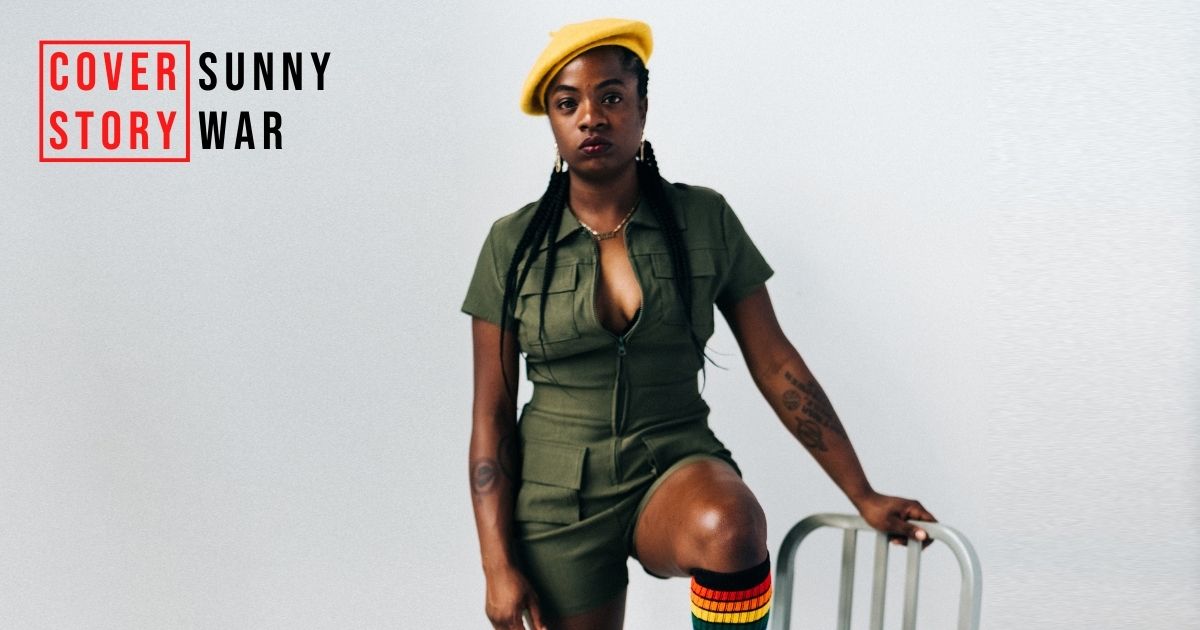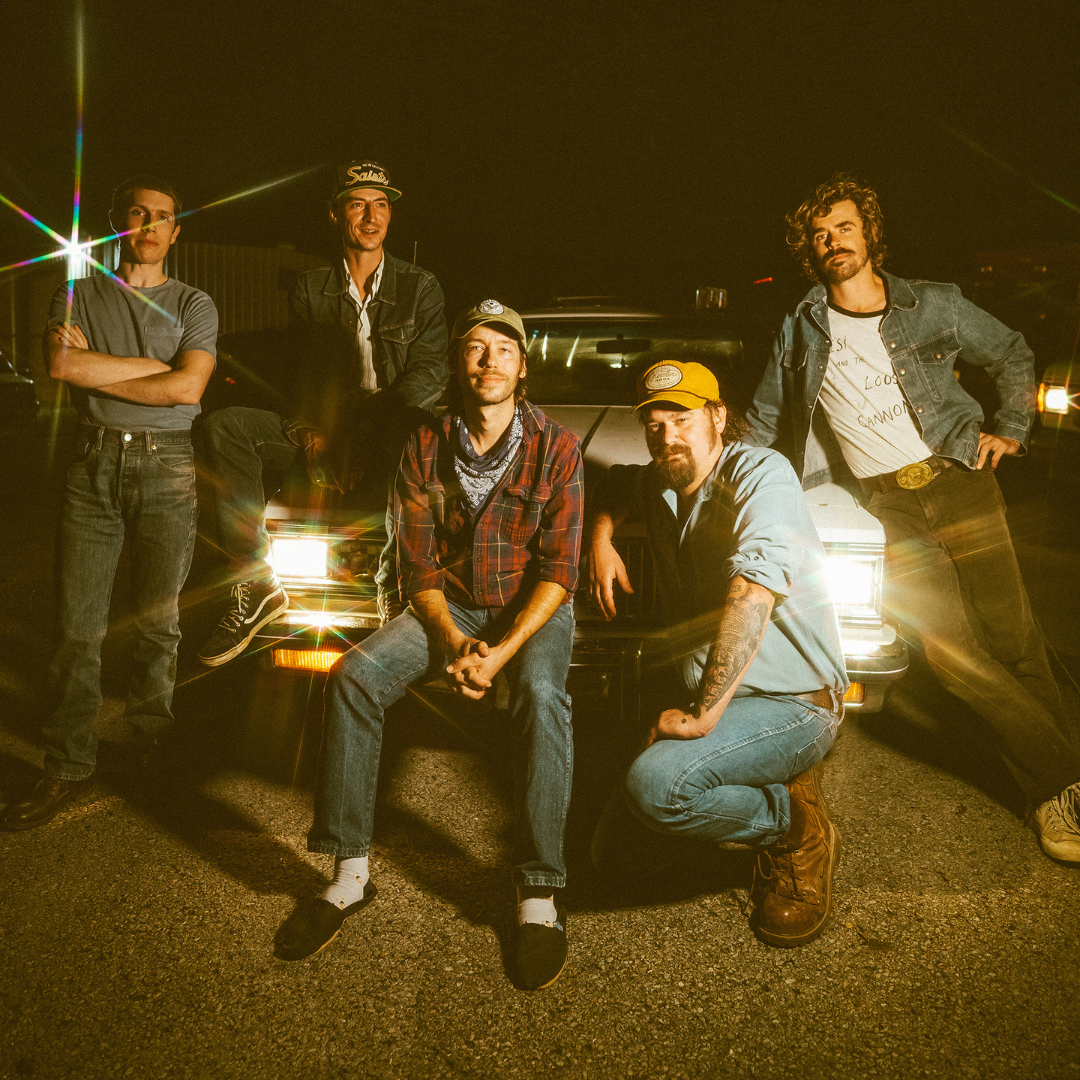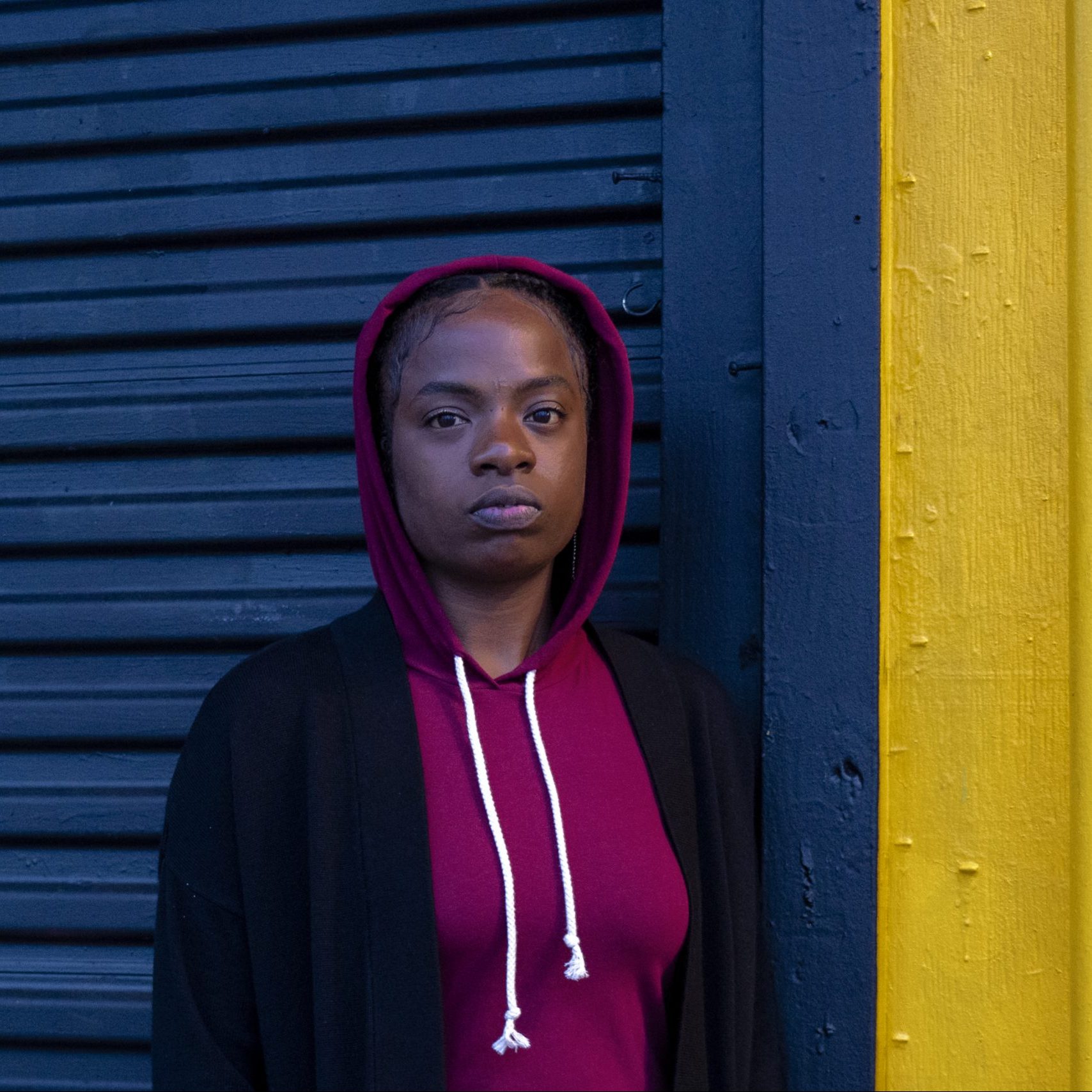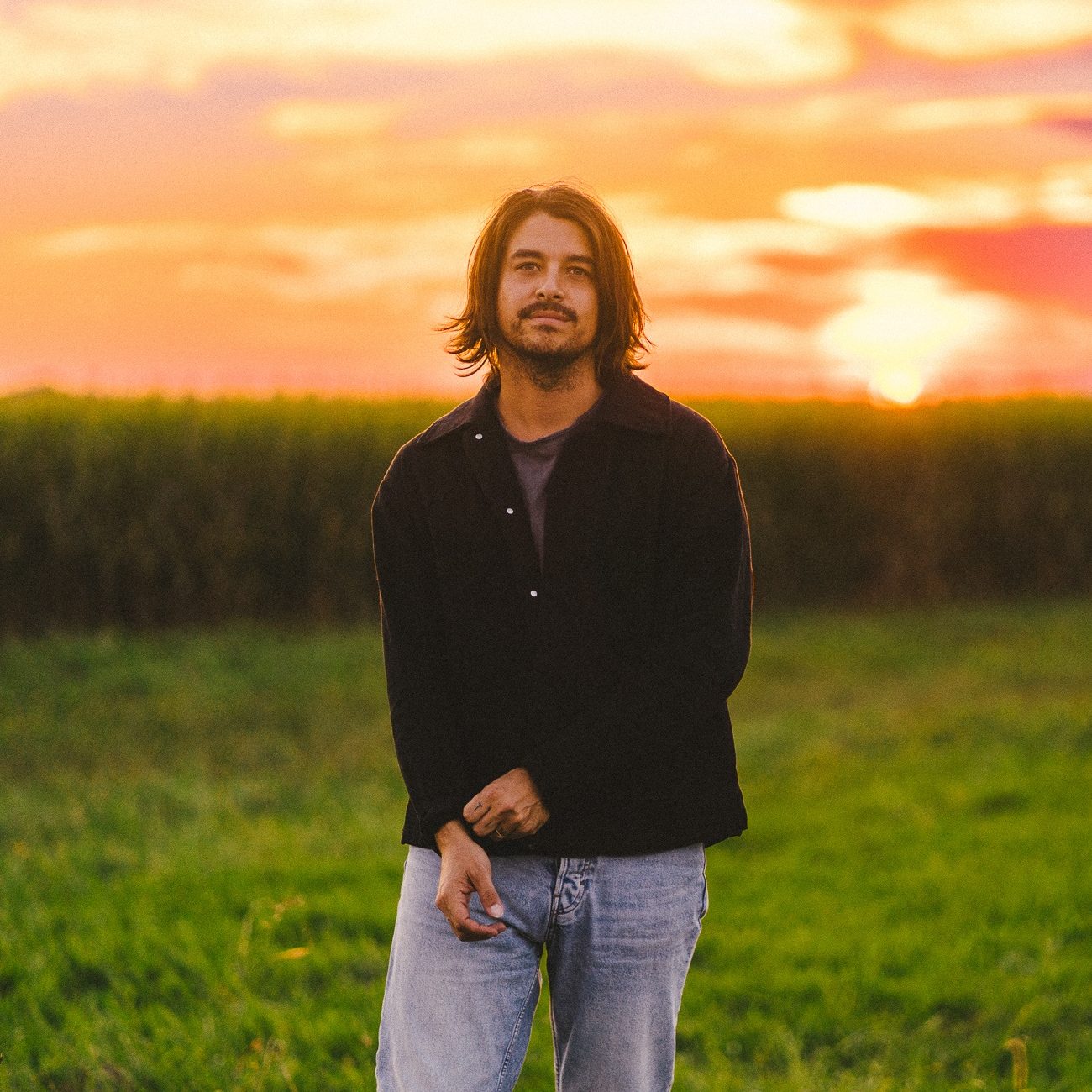Sunny War’s stunning new album, Anarchist Gospel, is never preachy, because it doesn’t need to be. War’s evocation of both anarchy and gospel in this context is strikingly grounded, blossoming from everyday understandings and interactions with each concept. And deeper still, in these sweeping, grand arrangements built on sturdy bones of fingerstyle, folk-informed right-hand guitar techniques, she indicates actions really do speak louder than words.
These songs are active. Bold, resplendent, and broad with dense, fully-realized production leading to tender, contemplative, and microscopic moments, War draws from her lived experiences, her days and years navigating poverty, living unhoused, sheltering in abandoned buildings, relying on and offering mutual aid, to direct messages of hope, resilience, resistance, and joy, not just to us, her listeners, but also to herself.
Perhaps that’s why, in this collection of songs born out of a harrowing and challenging emotional, spiritual, and mental period of Sunny War’s more recent past, there is so much hope in hopelessness, a constant – though sometimes minute – light shimmering at the end of the tunnel. Anarchist Gospel isn’t preaching at us, because she is compassionately, kindly, and tenderly talking to herself. And we all, as listeners, audience members, and fans, are just so fortunate enough to be brought into this internal dialogue, from which we can learn and challenge ourselves, and each other, to make a better world for everyone right now.
It’s a record whose underpinning moral-to-the-story is never burdensome or heavy, but rather uplifting and soaring, exactly as an Anarchist Gospel ought to be. We began our Cover Story interview connecting with Sunny War at home in Chattanooga over the phone, discussing how anarchy is not simply an academic concept, but a real, everyday practice.
I know that in your life, anarchy isn’t just a concept, it has a very real, concrete application in your day-to-day. I think first of your work with Food Not Bombs and the mutual aid work you’ve done in Los Angeles – and wherever you’ve lived. A lot of people right now, especially in younger generations, have frames of reference for anarchy and collectivism and mutual aid work, but usually in the abstract. As if these concepts can only be for some imagined future. So why is anarchy something you wanted to represent in the album and its title, and what does the concept of anarchy mean in your life?
Sunny War: The album title isn’t really political, to me. I felt like the big choruses [on the album] felt gospel in a way, but it wasn’t religious so I felt like it was Anarchist Gospel. It was really because of the one song, “Whole,” where I just felt like the message of the song was kind of about anarchy, in a way that most people could understand. I guess I’m more of a socialist now, but it’s the same sentiment. I just want people to have what they need. That’s more what anarchy means to me. It seems like it’s government that’s in the way of people getting what they need.
For me, it’s more personal. When I was homeless, a lot of times we would be living in abandoned buildings and we’d get arrested for that. Anarchy, to me, means, “Why can’t we be here? Nobody else is going to be in here. Why are you keeping us from this?” It feels weird that we don’t get to claim where we live, but other people do. Why do they have more rights to the same places? I don’t know if that’s anarchy, so much as I just think people have a right to everything.
It feels like there’s this agnosticism to the album, this come-togetherness, as something we can all feel and inhabit without necessarily being called to by a higher power. We really can all realize, whatever our starting points, that all we have is each other.
I’m not against people that need God, or whatever. I’ve been in places where I’ve felt like I wanted to believe in that before, so I can relate to where that comes from. But then, I don’t know… [Laughs] Whether it’s religious or spiritual, I don’t know.
This sounds like a record where we’re all supposed to be singing along. Part of that is the gospel tones, the title but also in the genre and production style, but part of it is also the messages here. Uplifting people from darkness, hope in hopelessness – so to me, so many moments on this album feel like church!
I love church! I grew up in church – well, I don’t love church, but I love gospel. I still listen to gospel and I guess I’m being nostalgic, but also it just slaps. That’s just good music. If you like original R&B, it’s the basis of so much of American music. I wish it was a little more, I dunno… I guess I wish it wasn’t religious. [Laughs] Then I’d really be into it. But it’s cool how it is.
In the moments in this record that feel like they’re at the lowest point, I still hear so much hope. I hear surrender in this album, not the kind that’s giving up, but the kind that feels generative and hopeful – especially in “I Got No Fight” and “Hopeless” and “Higher.”
This record was a lot of me talking to myself. It’s definitely the loneliest I’ve ever been writing something. Every other album I’ve ever made, I was in a relationship. This was different. After me and my ex broke up, I wasn’t even really socializing with my friends, because we had the same friends and I was embarrassed about our break up. I was so bitter, I didn’t want to be around anyone. I felt like I couldn’t be around anyone. I was barely leaving the house, I was isolating myself and got really morbid. I wasn’t turning lights on. [Laughs] I would sit in the dark a lot, I was lighting candles – [Laughing] I don’t really know what was going on, but it was mostly bad, I would drink a lot, and then I’d be like, “I’m drinking too much, I gotta get sober.” It would just repeat over and over again. But I was desperately trying to finish the album, because I was broke. I had the deal with New West, but I still had to produce the album before anything could get rolling. It was just what I had to do, but I was also going insane at the same time, and really angry.
Do you feel like making the record brought closure to any of that for you? I feel like I can hear a release of tension in this album, but I wonder where that comes from, because so many of the songs, individually, have these big, emotional releases. How does it feel to be at this point, looking back with the clarity you have now?
The second I wrote “I Got No Fight” I remember immediately feeling better. I made the demo, and afterwards it made me feel like I was just having a tantrum. But it was like I had to make the song to really understand what I was going through. After making the demo, I realized, “I am just freaking out, I think I’m having a panic attack.” After hearing this song, it helped me understand like, “This is not real, this is just a temporary feeling.” But I couldn’t really feel anything else until after that.
I have spent so much time over the past couple years trying to teach myself that the point of feelings is to feel them.
Yeah, but they suck most of the time. [Laughs] I don’t want most of them.
The line in that song, “Sometimes the end is the only light I see,” might be my favorite line on the record. There’s nihilism and existentialism in it, but it doesn’t feel hopeless or despairing. It’s kind of a cheerful, “Oh right! Nothing matters!” Where did that line come from for you?
That gets me through the day, a lot. Sometimes I think of life as just a jail sentence and I always think like, “Well, I probably am only going to live fifty more years at the most.” Sometimes that helps me get through the day. [Laughs] I know that that sounds negative, but that can really be uplifting if you chose for it to be!
It feels a lot lighter, to me at least, once you realize that nothing matters. Suddenly you can laugh a little bit more, improvise more – like lately, I’ve been trying to accept that I have no idea what I’m doing. I’m trying to get comfortable with it. In my twenties, I felt like I was trying to make plans all the time, planning so far into the future and just getting disappointed with stuff. It’s better to [recognize] – which is almost like religious people – you’re just powerless. Just try to eat something, drink some water. [Laughs]
Let’s talk about your guitar playing. I love your right hand so much. I think what’s entrancing about your guitar on this album is that it’s holding these songs together, but not as much as a rhythmic instrument or comping instrument, like in your past records. It’s more textural, to add depth and complexity, but your playing is still so hooky, melodically. Your personality comes through the guitar on top of all of these tracks. How did you accomplish that balance, having the guitar front and center and immediate, but it’s also not necessarily the centerpiece of these songs?
I think it’s because this is the first record where I knew how to use Logic, so my demos were almost full tracks already. I was adding keyboard and bass and programming drums to things before even going into the studio. A lot of the songs are all based on riffs that I’ve had for a while, that I couldn’t figure out how to use. Before, a lot of my other stuff, I was just writing a song. Now, I just collect guitar parts and I try to make them work in something, but I don’t really have a [plan for them, initially.] I’m basing it more off the guitar parts now.
How do you like the banjo? Is this the first time you had banjo on a record?
Yeah!
What do you think writing on the banjo leads you to that a guitar or keys or writing on another instrument wouldn’t lead you to?
Anything that’s tuned differently makes me have to think differently about stuff. I still don’t really “get” the banjo, it’s weird because I have had a banjo for over 10 years now, but it still seems like something I’m trying to learn about. I just recently got okay with being like, “I’m just going to make sounds with it.” I’m not going to try to “learn” it. [Laughs] I definitely want to make more songs with the banjo – and maybe even without a guitar, and see what that’s like. Some of my favorite buskers I’ve ever seen are just a singer with a banjo. I think it makes people sing different. I gotta get my banjos out now…
Guitar culture – guitar shop culture, guitar show culture – it’s such a toxically masculine scene, and it’s so competitive and punishing, that I kind of have realized over the past few years that the people helping me realize I still love the guitar and guitar culture are all women and femmes. Like, Jackie Venson, Molly Tuttle, folks like Celisse and Madison Cunningham, or like Kaki King and Megan McCormick and Joy Clark – I can think of so many guitarists who aren’t just really good, but they’re also pushing the envelope, they’re innovating, and they have really strong perspectives and voices on the instrument, like yourself. So I wanted to ask you about your own relationship with guitar culture and the guitar scene, because as a queer banjo player who loves music, I kinda hate people who love guitar. But I’ve been so grateful that all these women are reminding me I can love guitar and it’s not just a patriarchal, toxically masculine instrument and scene.
I just try to stay out of it. Sometimes at shows, guitar guys talk to me and I just tell them, “I don’t know. I don’t know.” [Laughs] Because I don’t want to get into any discussion about it. I know a lot of people who can really play, but [guitar guys] make it so you have to be kinda crazy, kinda obsessive. And it’s so competitive. That doesn’t sound fun to me. I don’t get how that’s fun anymore. It’s not art, at that point. It’s almost like a sport. Which you can, go ahead and practice scales all day so you can play the fastest, but then a lot of times people can be really technically good, but there’s no soul in it. They’re just trying to cram as many riffs into something as possible. They take all the art out of it, they’re technically playing perfectly, but I don’t feel anything.
I would much rather be listening to my favorite guitar player, who is Yasmin Williams. It’s not just because of technical ability, but because it’s progressive. I’m like, “That’s outta the box, I don’t know where that’s going.” That’s what I like about it.
Photo credit: Joshua Black Wilkins



